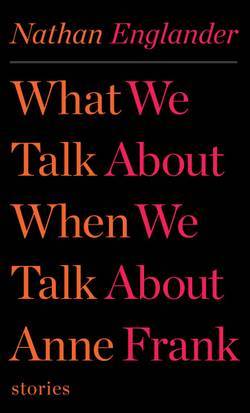Nathan Englander’s second story collection (he has also published a novel) includes eight new stories that combine comedy and tragedy and consider larger questions about human nature. He presents those questions through the lenses of Jewish characters of all ages, from New York to Europe to Israel.
The title story brings together two married couples in one couple’s home in Florida. The other couple, Mark and Lauren, are Hasidic and live in Israel. Deb and Lauren are longtime friends. The couples talk from different perspectives. Mark says that “the most annoying thing about being Hasidic in the outside world … is the constant policing by civilians.”
He notes that Deb and her husband, the unnamed narrator, are obsessed with the Holocaust “as a necessary sign of identity.” For him, the current “Holocaust” destroying Judaism is intermarriage.
Soon the tension eases as they partake of the marijuana stashed away by the Florida couple’s son. Soon they’re laughing, then satisfying their hunger. Later they begin a game that Deb and Lauren played when they were young. Called “the Anne Frank game,” it asks players to imagine a second Holocaust, then talk about which of their Christian friends would hide them.
The game leads to a surprising – and alarming – revelation.
In the back of every character’s mind in these stories is the Holocaust. The characters vary greatly in their observation of Jewish practices, yet that dark cloud affects them all.
In “Camp Sundown,” a camp director tries to talk a group of elderly vigilantes from taking action against someone they believe is a Nazi from the concentration camps. Mixed with that tension is some funny dialogue that plays with language. One character says someone “wears now a wig and eats the snafu hot dogs.” The camp director corrects him: “Tofu.”
These stories deal with how to be Jewish in a world that is often anti-Semitic. Yet Englander does not romanticize Jews or portray them as victims. The enemies of many of these characters are themselves.
Englander is a fine writer who is willing to take risks. He includes many Hebrew or Yiddish words and some Jewish arcana, and sometimes it’s obscure. One passage runs, “he went to heder, had the peyes and all that. But in America, a classic galusmonger.”
Englander, part of a new generation of outstanding short-story writers, is worth reading.
Send questions/comments to the editors.



Success. Please wait for the page to reload. If the page does not reload within 5 seconds, please refresh the page.
Enter your email and password to access comments.
Hi, to comment on stories you must . This profile is in addition to your subscription and website login.
Already have a commenting profile? .
Invalid username/password.
Please check your email to confirm and complete your registration.
Only subscribers are eligible to post comments. Please subscribe or login first for digital access. Here’s why.
Use the form below to reset your password. When you've submitted your account email, we will send an email with a reset code.